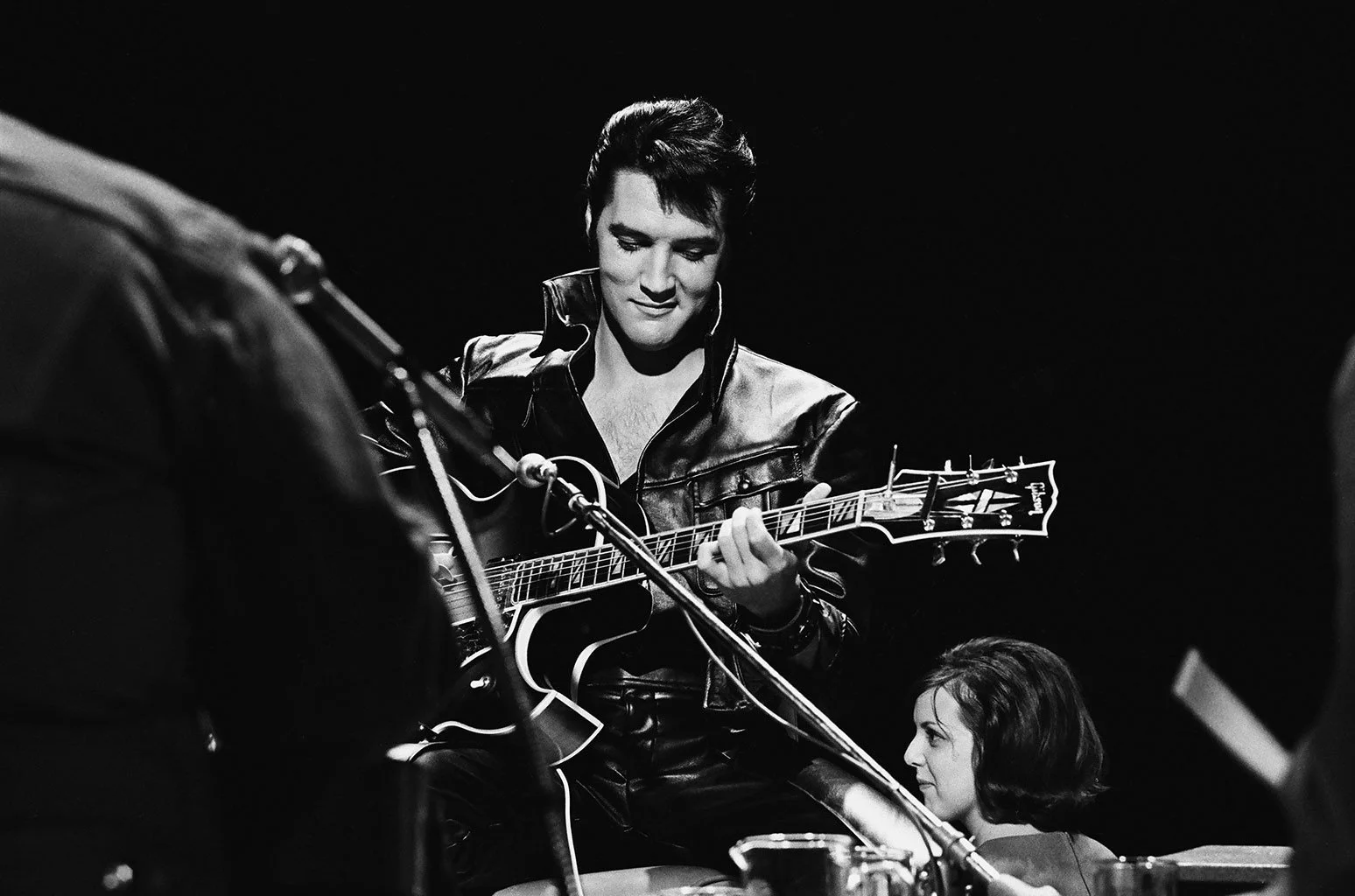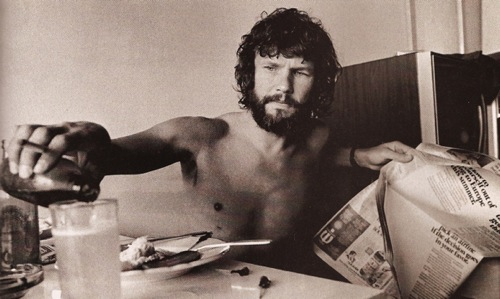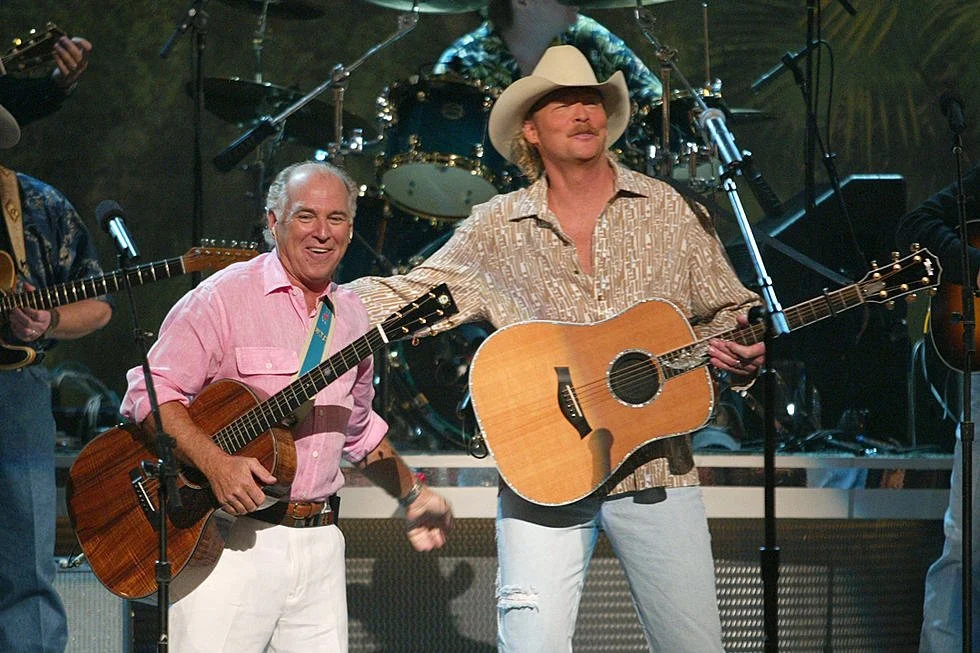10 of the Most Iconic Classic Country Songs with Spoken Interludes
The spoken interlude: an underrated but iconic addition to any song. Country fan or not, here are the most memorable classic country songs with monologues you can’t help but love.
Written by Caroline Harrison
Photo courtesy of Bill Preston
While spoken interludes can be found in just about every style of music, no other genre does them quite like country. Ranging from emotional monologues to humorous conversations and nostalgic stories, spoken interludes return musicians and audiences to country music’s folk roots of storytelling and community.
With the genre’s natural gravitation toward ballads, country music has an endless supply of spoken interludes; however, these are the most memorable classics recognized for their humor, emotional impact, and that typical country cheesiness.
“I Will Always Love You” by Dolly Parton
Photo courtesy of The Hope Powell Collection by Singleton/Curb
Dolly Parton: you know her, you love her. Known for other classics like “Jolene” and “9 to 5,” Parton is often forgotten as the original writer and singer of “I Will Always Love You” after Whitney Houston’s 1992 cover exceeded the original 1974 version’s popularity. Parton’s monologue in this song follows the previous verses’ bittersweet and soft tone as she wishes her lover well as she leaves, saying “I hope that life treats you kind and I hope that you have all that you’ve ever dreamed of, and I wish you joy and happiness, but above all of this I wish you love.” In addition to showing Parton’s talent as a singer and songwriter, this interlude’s vulnerability and acceptance set a new precedent for raw, candid songs in the genre, particularly among women singers.
“You Look So Good In Love” by George Strait
Photo courtesy of George Strait
This spoken interlude also takes a wistful and sentimental approach as George Strait reminisces about being blind to the love he once had now that he sees her with another man. Though short, this monologue remains memorable because of its respectful tone and relatability. Despite being upset that he “wasted a lot of years not seeing the real you,” his respect for his ex-love makes this sad moment sweet, as he acknowledges his previous mistakes and notices how “tonight your beauty is shining through” now that she’s with another man. Love is a common topic in music, especially country, making Strait’s interlude of missed opportunity something everyone can relate to, whether it’s from his perspective or his ex’s.
“Are You Lonesome Tonight?” by Elvis Presley
Photo courtesy of Frank Carroll/Gary Null/NBC/NBCU Photo Bank via Getty Images
While regarded as the “King of Rock and Roll,” Elvis Presley remains an important figure in country music as well. “Are You Lonesome Tonight?” features a lengthy spoken interlude directed at his love. The theatrical nature of this monologue makes it a remarkable addition to the music scene. Setting up this interlude by saying “the world’s a stage and each must play a part,” Presley’s soliloquy is “meta” in a way that hadn’t been deeply explored at the time. Using acts to represent phases of their relationship, he reclaims figurative and literal stages that the public put him and his lover on. In the beginning, or act one, Presley loved her “at first glance” but “then came act two, you seemed to change and you started acting strange.” As pressures mounted, their relationship eventually failed and he’s left alone on his stage. Summing up experiences that most celebrities face, the King of Rock and Roll uses this metaphorical stage to express his own struggles and share them with the same audience who doomed his relationship from the start.
“Here I Am” by Lyle Lovett
Photo courtesy of Dutch Simba
“Here I Am” features a witty and satirical take on the often overdramatic spoken interlude. With monologues that start like “given that true intellectual and emotional compatibility are at the very least difficult, if not impossible to come by,” Lyle Lovett uses his strong storytelling skills in short spoken verses throughout the song to lure listeners into this seemingly serious track. Then at the end of the song, he surprises them with a humorous concluding interlude that emphasizes the overall irony and humor of the previous interludes. Allowing Lovett poke fun at his own genre, this song is a refreshing take on the serious spoken interludes that country classics frequent.
“To Beat the Devil” by Kris Kristofferson
Photo courtesy of Saving Country Music
Written by Kris Kristofferson in 1967, “To Beat the Devil” was originally released by Johnny Cash in 1970, though Kristofferson released his own recording later that year. While Cash’s version of the song is worth listening to with its candid parallel to his own struggles with substance abuse, Kristofferson’s inclusion of an additional introduction makes this song an ode to a friend and mentor. By describing his moment of inspiration for this song and thanking Cash and his wife, June Carter Cash, this introduction personalizes the song’s message and explains the history between these important figures in country music. Forming first as a collaborative relationship with Kristofferson writing multiple songs for the album Hello, I’m Johnny Cash, the two musicians quickly became close friends as they dealt with similar pressures in the music industry as this song references. Throughout the song, the verses take on a semi-spoken approach that reflects other Cash and Kristofferson projects, but none of the verses add real-world context like the introduction. Authenticity is a strong tool in any musician’s arsenal, but country music particularly thrives on genuine and relatable lyrics, as shown in this classic.
“As Soon As I Hang Up The Phone” by Loretta Lynn and Conway Twitty
Photo courtesy of Central Press
With their talent and natural chemistry, Loretta Lynn and Conway Twitty are one of country’s most beloved duos. This song reflects their gravitation to themes of love and heartbreak through their conversational singing and dialogue via telephone. Singing throughout, Lynn responds heartbroken to Twitty’s spoken word from a telephone. The separation of the singers in the story is emphasized through the two different mediums that Lynn and Twitty use. Though they had many popular songs together, the contrast of Lynn’s emotional vocals and Twitty’s interrupted speaking highlights the storytelling skills that made them such an iconic pair.
“The Guitar” by Guy Clark
Photo courtesy of Jim McGuire
With a unique approach to spoken interludes, “The Guitar” focuses on Guy Clark’s storytelling and musical skill without using any other vocals or singing. Many of his songs resemble Johnny Cash, Marty Robbins, and Charlie Daniels, all of whom favor a style of singing that’s nearly spoken, so Clark is familiar with this traditional approach of using both speech and song in his music. Instead of focusing on a combination of the two, this song departs from typical format as he uses this monologue as a transition between instrumentals. Having a strong spoken part, Clark is able to rely on only his dynamic guitar solos to fill the space between his speaking. This song’s unique use of space showcases the talent and effect these spoken interludes can have without singing.
“It’s Five O’Clock Somewhere” by Jimmy Buffet and Alan Jackson
Photo courtesy of Scott Gries
Considerably one of the most well-liked country songs, even by skeptics of the genre, “It’s Five O’Clock Somewhere” is a party staple with its fun and lighthearted tone. Simple in lyrics and meaning, this song doesn’t try to be revolutionary but rather stays consistent in its purpose to entertain and uplift. Jackson and Buffett’s spoken interlude in this song stays true to this purpose as Buffett says, “It’s always on five in Margaritaville, come to think of it. You’ve been there, haven’t you?” and Jackson replies, “I’ve been to Margaritaville a few times. Stumbled all the way back.” Talking and joking back and forth, these two personify the song’s tone. This personal inclusion of their laidback temperaments make this a classic of country interludes and good times.
“I’ll Always Remember You” by George Strait
Including two of George Strait’s songs only seemed fitting for the King of Country. “I’ll Always Remember You” demonstrates Strait’s vulnerability and appreciation as he sings this song to his fans. His spoken interlude carries over this tone as he talks about being on the road for more years than he ever expected and that he hopes that he can continue to share this experience with his audience. While most monologues are directed at a more personal relationship, usually a lover, within the song, Strait takes a refreshing approach of addressing his audience. Despite his fame and time in the spotlight, Strait exemplifies his reputation of a down-to-earth country boy in this display of gratitude and acknowledgement of privilege through this song and interlude.
“You Never Even Called Me By My Name” by David Allan Coe
Photo courtesy of David Allan Coe
Self-proclaimed the “best country and western song,” this track by David Allan Coe contains characteristic features and topics of its genre. While its references to other famous figures like Waylon Jennings and Willie Nelson make the song iconic without the monologue, Coe’s interlude tells a humorous story that epitomizes the country experience. After these references and talk of life on the road and love, you think Coe has covered most common topics of the genre, but then he uses the monologue to poke fun at the genre and listeners. Including the story of how the song came to be and how he wrote the last verse to sum up the topics he forgot to mention, this song’s interlude is both entertaining and influential as it acknowledges the defining characteristics of country music at the time.
Despite the various topics and executions of spoken interludes in country music, there’s a unifying characteristic across these songs: relatability. By speaking to the audience or to the subject of the song, these musicians take heartbreak, humor, happiness, whatever their message may be, and directly share it with them. Instead of listeners hearing the songs, they can almost enter into conversation with the singer.
While there’s an underlying humor in the cheesiness of most of these older songs, their return to the genre’s folk roots epitomizes country’s foundation of community and shared experiences.











